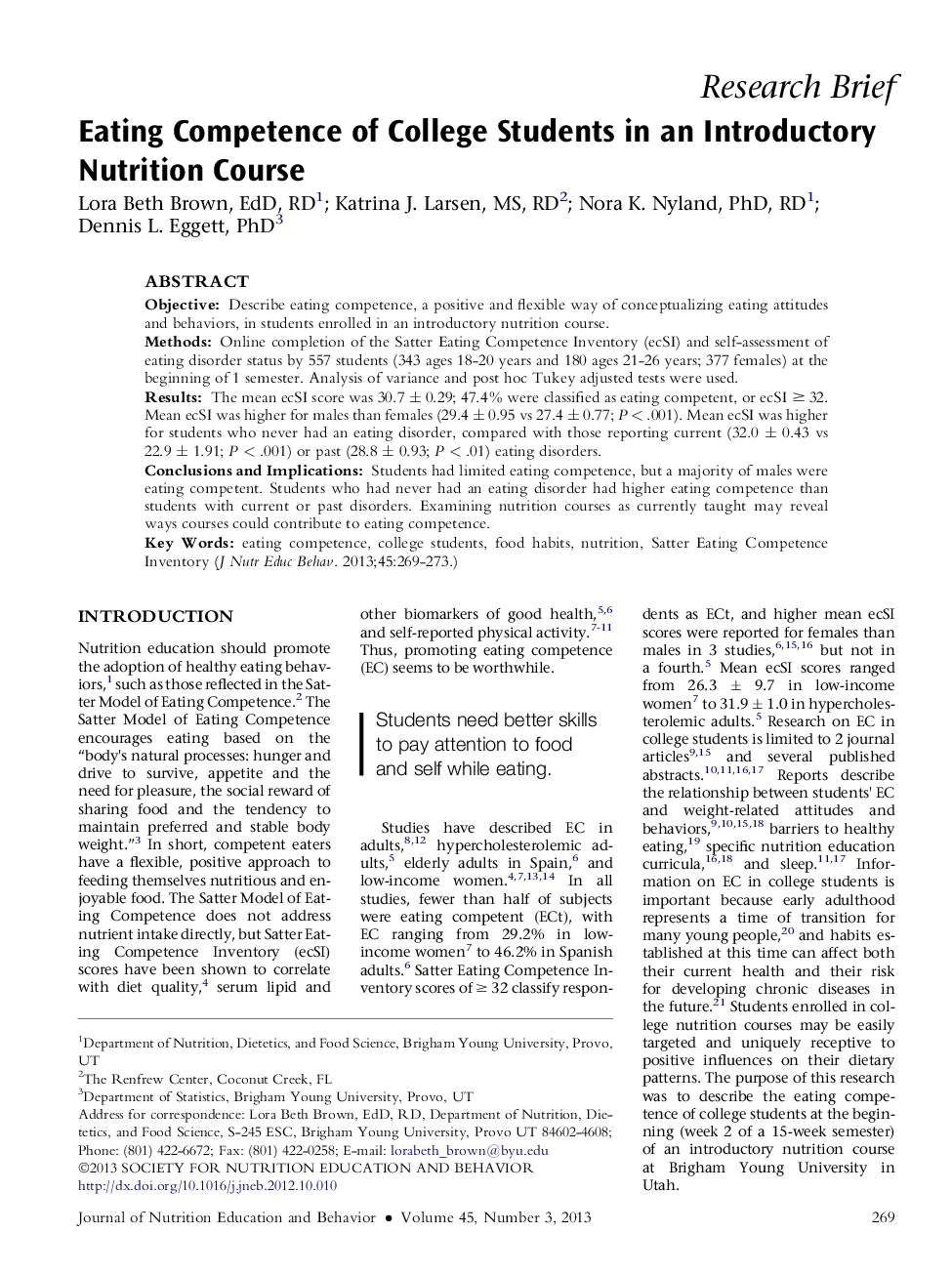| Article ID | Journal | Published Year | Pages | File Type |
|---|---|---|---|---|
| 361895 | Journal of Nutrition Education and Behavior | 2013 | 5 Pages |
ObjectiveDescribe eating competence, a positive and flexible way of conceptualizing eating attitudes and behaviors, in students enrolled in an introductory nutrition course.MethodsOnline completion of the Satter Eating Competence Inventory (ecSI) and self-assessment of eating disorder status by 557 students (343 ages 18-20 years and 180 ages 21-26 years; 377 females) at the beginning of 1 semester. Analysis of variance and post hoc Tukey adjusted tests were used.ResultsThe mean ecSI score was 30.7 ± 0.29; 47.4% were classified as eating competent, or ecSI ≥ 32. Mean ecSI was higher for males than females (29.4 ± 0.95 vs 27.4 ± 0.77; P < .001). Mean ecSI was higher for students who never had an eating disorder, compared with those reporting current (32.0 ± 0.43 vs 22.9 ± 1.91; P < .001) or past (28.8 ± 0.93; P < .01) eating disorders.Conclusions and ImplicationsStudents had limited eating competence, but a majority of males were eating competent. Students who had never had an eating disorder had higher eating competence than students with current or past disorders. Examining nutrition courses as currently taught may reveal ways courses could contribute to eating competence.
